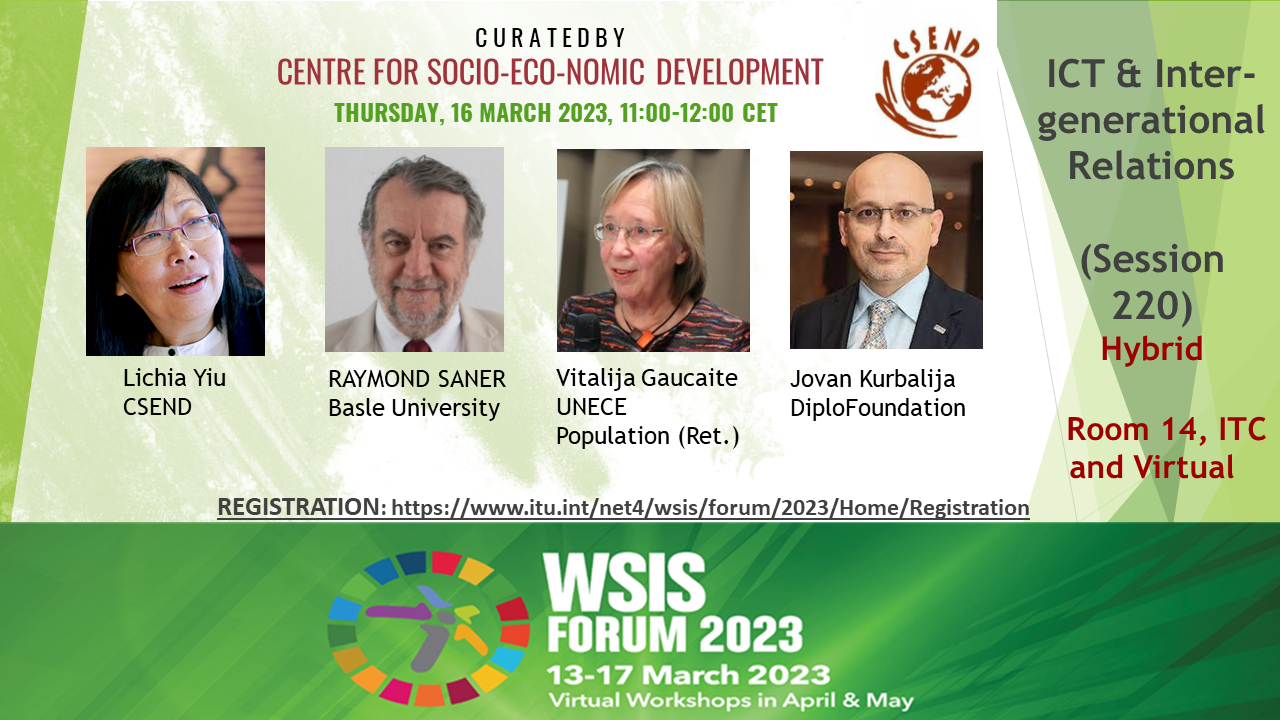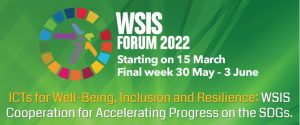Active Aging- Aging with Dignity and the SDGs
Raymond Saner (2025) “Emeriti Professors as entrepreneurs”
Emerald Publ. UK
Retirement and average life expectations in the European and North American regions indicate that retired persons, in general, are in good health between 60/65 to 80/85 years of age. Some use this window of longer life expectations to work because their pension fund is insufficient to live a decent life. Others enjoy the new freedom of not having to work and choose to explore interesting tourist attractions, cultural events and other activities like gardening or caring for their grandchildren. However, an increasing number of retirees express interest in continuing to work and engage in meaningful jobs or contribute to solving important societal problems. A small group who has accumulated financial resources during their work life is interested in sharing their knowledge and skills and helping new start-up companies or associations active in the solidarity and social economy.

Intergenerational partnerships mean that “all generations work together to create change, rather than having to compete for their right to participation” (The Youth – Friendly Guide to Intergenerational Decision Making Partnerships, 2004).
Creating intergenerational partnerships is challenging and will not happen overnight. This WSIS Special Initiative and Special Tracks brings together the stakeholder groups to explore and discuss how such partnerships could be created, facilitated and fostered to contribute to a sustainable future for all.
Raymond Saner (2023): “Older Persons, Digital Products and Standards: The need for consumer protection and support for continuous learning of older persons”, in Social Aspects of Ageing- Selected Challenges, Analyses, and Solutions, Edited by .Andrzej Klimczuk; open access journal: DOII:10.5772/intechopen.108983
This chapter addresses the need to help older persons adjust to the digital age and describes major challenges that aging persons as well as persons of all ages have to face in light of today’s virtual realities. The author proposes how to best facilitate and support older persons coping strategies and how they can obtain and maintain adequate digital literacy and ability to use existing digital resources. The article describes the hidden costs of the digital age for older persons and offers six solutions how these digital challenges could best be overcome from individual, social and public policy perspectives.

WSIS 2022: Digitalization and the future of work through inter-generational collaboration, panel organized by Raymond Saner, CSEND with following contributions: “Workforce aging, productivity and industrial structure in Europe (Prof. Iñigo Calvo Sotomayor, Deusto Business School, Bilbao, Spain); “Digitalization and the future of work through inter-generational collaboration- the case of Hong Kong” (Prof. Peter Fong, Ph.D, President, HK Public Administration Association); Intergenerational Collaboration on ICT: the AAL experience- a comparative analysis” (Klaus Niederländer, Director, Central Management Unit, AAL , Brussels); “ ICT voluntarism by young people to improve older persons’ digital literacy in China (Prof. Dr Yifan YANG.; Deputy Director, NIIA, Southwest Jiaotong University, Chengdu, China) and “Digitalization, future of work and participation across age groups” by (Prof Lichia Saner Yiu, President, CSEND, Geneva).
A session at WSIS Forum 2019, Geneva
Monday, April 8 2019, from 4:30pm to 6:15pm, Room M, ITU
Information and communication technologies (ICT) have extraordinary potential to help with the response to the demands of a major demographic shift, including meeting the challenges of a shrinking workforce and improving healthcare and caregiving for older persons. Yet key challenges exist that need to be addressed, including accessibility of these technologies and digital skills for older persons. This panel will explore how older persons are using ICTs to ensure positive change for themselves and others, manage age-related challenges, and overcome risks, barriers and stereotypes. It will include speakers from a variety of stakeholder groups.
No international convention exists so far that would offer protection of older people. However, different initiatives have been launched to bring to the public’s attention that older people often experience severe discrimination (Ageism) and appalling situation in elderly care institutions and even at home in the context of family. The following institutions are contributing to the international efforts to create policies and international agreements that could lead to an international convention for the protection of older persons.
Statements prepared by CSEND and presented during the 9th Open-Ended Working Group on Aging (OEWGA). held in New York on 23-27 July 2018 at UN Headquarters in New York City
The Department of Ageing and Life Course organises its work according to the 5 strategic priority areas identified in the Global strategy and action plan on ageing and health 2016-202 such as commitment to action, age-friendly environments, health systems that meet the needs of older people, long-term-care systems and data and research. http://www.who.int/ageing/en/
The overall goals and objectives of the NGO Committee are to further the United Nations’ mission of building a society for all ages; to raise awareness of ageing and intergenerational issues and ensure that they are adequately addressed by the UN System; to advocate for a new convention on the rights of older persons; and to influence global policy and monitor the implementation of existing commitments; http://ageingcommitteegeneva.org/events/
Seminar on “Basics on Aging”, joint event by NGO Committee on Ageing, ILO and WHO
UNECE Working Group on Aging
The Working Group on Ageing is an intergovernmental body which was first convened in 2008. It is made up of national focal points on ageing representing the member States of the UNECE region, along with representatives from international organizations, NGOs and academia. https://www.unece.org/population/wga.html
10th meeting of the Working Group on Ageing, 23rd November 2017, Geneva
Official meeting at the United Nations in Geneva, 23-24 November 2017 in the presence of government delegates of the UNECE region as well as different Civil Society Organisations.
 Working Group metting on Ageing
Working Group metting on Ageing
MIPPA Meets SDG1 Responses to Old-Age Poverty in the Unece Region
The side event provided an overview of old-age poverty in UNECE member countries and its determinants. Inclusive policies reducing the risk of old-age poverty and promoting active ageing were shared by Austria, France and Norway and the important role of civil society in addressing old-age poverty in the region were illustrated.
NIIA organized the first China (Sichuan) Senior Welfare and Wellness Industry Development Summit Programme, on 26-28 October 2017, Chengu- China.
Presentation by Raymond Saner titled “ Silver Tsunami or Silver Opportunities? Platforms for Engagement.
CSEND is an independent, project-financed, non-profit research & development organization founded in 1993 in Geneva and accredited by ECOSOC with special consultative status to the United Nations. CSEND’s goal is to enhance collaboration between social, economic and political actors and to strengthen global governance through multi-stakeholder negotiations and inter-generational dialogue.
UN Library Talk: Roundtable on “How to Ensure Ageing with Dignity?”, 23 May 2017 – A Contribution to the Implementation of SDG3 of the “2030 Sustainable Development Goals”
The First China (Sichuan) Senior Welfare and Wellness Industry Development Summit Programme, Chengdu, 26th October 2017
Presentation given by Raymond Saner titled “Silver Tsunami or Silver Opportunities? Platforms for Engagement”